|
|
|
|
|
Chang'e-1 to meet moon eclipse today
China's first lunar probing satellite, Chang'e-1, will be put to test Thursday morning when the Earth eclipses the Sun and blocks the supply of solar energy.
| |
|
Think tank of China's first lunar exploration program
On December 12, President Hu Jintao declared that China had joined other countries having the capability for deep space exploration.
The capability for deep space exploration includes the potential to enter space, satellite development and application, space foundation and protection, manned spaceflight as well as space exploration, all of which can be attributed to many technical breakthroughs inside China within the past three years.
China's first lunar exploration program has been very successful, demonstrating outstanding wisdom on the part of the Chinese scientists.
| |
|
14 babies named Chang'e
Fourteen Chinese babies have received the name Chang'e because they were born between October 24 and November 7, when China's first lunar probe, Chang'e-1, was launched into space.
| |
|
Space scientists foresee arduous future tasks
Chinese scientists have pledged to seize time to start the plan and implementation for the second-phase of China's lunar probe program at a red-carpet ceremony opened on Wednesday morning to mark the country's initial success in deep space exploration.
| |
|
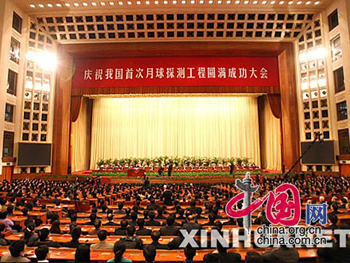 President pledges peaceful use of outer space
President pledges peaceful use of outer space
President Hu Jintao pledged Wednesday that China would adhere to the principle of peaceful development and use of outer space in concerted efforts with other nations at a grand ceremony to celebrate the success of China's first lunar probe Chang'e-1 in the Great Hall of the People.
| |
|
1st Mars probe to blast off in 2009
China's first Mars probe is scheduled to be launched atop a Russian rocket in October 2009, revealed a project researcher Sunday at a forum in Hainan Province.
| |
|
Blackout to test power supply of Chang'e I
Chang'e I will experience a lunar eclipse around February 21. This may lead to a power shortage because of the lack of sunlight on its solar panels that generate electricity, experts have said.
| |
|
Chang'e I begins its exploration work
Chang'e I, China's first lunar orbiter, officially began exploring the moon yesterday evening, the China National Space Administration (CNSA) said.
| |
|
Chang'e-1 set to power up equipment
China's first lunar orbiter Chang'e-1 will change its posture to get positioned on the moon late tonight, and activate probing facilities aboard afterwards to get ready for scientific exploration, the China National Space Administration said yesterday.
| |
|
Chang'e I enters moon's 'working orbit'
The country's first lunar orbiter entered the moon's "working orbit" after completing its third and final braking at 8:34 AM yesterday, the China National Space Administration (CNSA) announced.
| |
|
Chang'e-1 completes journey to moon
China's first lunar probe, Chang'e-1, completed its 1,580,000-km flying journey to the moon successfully on Wednesday morning and entered its working orbit.
| |
|
Launch of space station set for 2020
China is well on track to launching its own space station by 2020, according to a top rocket expert. He also described the planned space station as "a small-scale 20-ton space workshop".
| |
|
Long March 3B in 2nd stage mission
China is studying the feasibility of using the Long March 3B carrier rocket for the country's second-stage moon mission of lunar landing, a spokesman for the China National Space Administration said yesterday.
| |
|
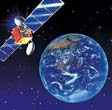 1st lunar probe enters moon's orbit
1st lunar probe enters moon's orbit
China's first lunar probe, Chang'e-1, successfully completed its first braking at perilune and entered the moon's orbit Monday morning, becoming China's first circumlunar satellite.
| |
|
Chang'e-1 at its furthest point from Earth
Chang'e-1, the country's first moon orbiter, arrived at its furthest point from Earth - some 120,000 km - at 5:40 PM yesterday on a new orbit, setting a distance record for China's space industry.
| |
|
 China promises to make public data
China promises to make public data
China will make public the data collected by its first lunar probe Chang'e-1 and share them with foreign countries, Chinese official in charge of the moon exploration program said on Monday.
| |
|
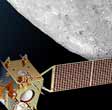 Chang'e I completes 2nd transfer
Chang'e I completes 2nd transfer
Chang'e I, China's first lunar orbiter, continued its dance in outer space on Friday, completing its second orbital transfer to move a step further on its 380,000-km journey to Earth's only satellite.
| |
|
 Lunar probe completes first orbital transfer
Lunar probe completes first orbital transfer
China's first lunar probe Chang'e-1 completed its first orbital transfer Thursday afternoon, another key move in its 380,000-km journey to the moon. The orbital transfer began at 5:55 PM and succeeded after 130 seconds.
| |
|
Chang'e I solar antenna activated
The first piece of probe equipment on Chang'e I, the country's maiden lunar orbiter which was launched on Wednesday and is circling Earth, was activated last night.
| |
|
China has no timetable for manned moon landing
China has no plan or timetable for a manned moon landing for now, senior Chinese lunar scientists told Xinhua on Thursday, a day after the nation launched its first lunar probe, Chang'e-1.
| |
|
Solar panel of Chang'e-1 probe unfolded
China's first lunar probe Chang'e-1 has begun to use solar energy for power supply as the solar panel of the orbiter was unfolded as planned, according to the control center.
| |
|
1st moon orbiter enters earth orbit
The Chang'e-1 moon orbiter has entered into a 16-hour orbit at 205 kilometers perigee and 50,930 kilometers apogee, statistics from the Beijing Aerospace Control Center (BACC) shows.
| |
|
Lunar orbiter project costs only 1 bln yuan
China's milestone lunar orbiter project only costs 1 to 1.4 billion yuan (about US$133 to 187 million), the same amount as the money used to construct two kilometers of subway in Beijing, said Ouyang Ziyuan, chief scientist of the lunar exploration program.
| |
|
Chang'e-1 launch site clears for blastoff
Testing operators have started leaving the launching tower in the Xichang Satellite Launch Center, where China's first lunar probe Chang'e-1 will blast off at around 6:00 PM on Wednesday.
| |
|
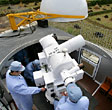 Chang'e I will lift off on schedule today
Chang'e I will lift off on schedule today
Chang'e I is expected to blast off as scheduled late this afternoon. This morning's heavy downpour will not affect launch plans, according to a scientist at the Xichang Satellite Launch Center. China.org.cn has a reporter on site at Xichang, Sichuan Province.
| |
|
China's road to the moon
The nation's first moon orbiter is scheduled to blast off at around 6:05 PM today from the Xichang Satellite Launch Center in southwest China's Sichuan Province. Yet China's road to the moon has not been very smooth. In past years, untold Chinese people have made Herculean efforts to fulfill the dream their ancestors have cherished for thousands of years.
| |
|
Chinese expect lunar satellite launch
The run-up to the launch of China's first lunar orbiter at the end of this month has caught the country's imagination, with more than two thirds of the nation hoping to see the launch live on TV, according to a survey.
| |
|
Liftoff for aerospace blueprint
The government yesterday unveiled an ambitious blueprint for aerospace development in the next five years, just days before the launch of China's first lunar orbiter scheduled for next week.
| |
|
 China to launch 1st lunar satellite next week
China to launch 1st lunar satellite next week
China's first lunar satellite is scheduled to blast off next week from the Xichang Satellite Launch Center in southwest China's Sichuan Province, the Shanghai Morning Post reported today.
| |
|
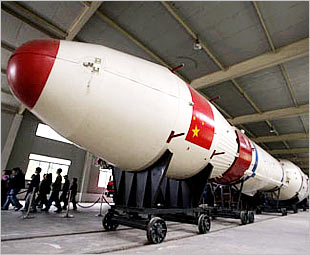 Moon orbiter, Chang'e I, sets to take off
Moon orbiter, Chang'e I, sets to take off
Visitors walk past Long March III carrier rocket at the Xichang Satellite Launch Center located in southwest China's Sichuan Province October 18. The country's first moon orbiter, Chang'e I, is set to be launched in late October.
| |
|
China's first lunar satellite scheduled to hit moon
Chang'e I, China's first lunar probe satellite will hit the moon to end its one-year orbital tour as part of the research mission, said Professor Xiao Naiyuan from the Department of Astronomy of Nanjing University in a scientific lecture held on October 6, according to a report by Nanjing Daily on October 8. The launch day of the satellite is yet to be determined.
| |
|
Space program eyes farther frontiers
Major breakthroughs are expected by 2010 in the country's ambitious space programs - from manned flights to the lunar probe - a senior space administrator said yesterday.
| |
|
 Fly Me to the Moon: The Great Debate
Fly Me to the Moon: The Great Debate
Back in March 2003, the China National Space Administration formally announced that it had begun working on the lunar probe project. The lunar landing is a source of fascination for many, but it is also a target of criticism and disparagement.
| |
|
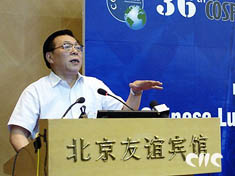 China's 1st Lunar Orbiter Equals 2km of Subway
China's 1st Lunar Orbiter Equals 2km of Subway
The first stage of China's moon-orbiting program - the launching of the Chang'e-1 Lunar Orbiter - will cost as much as the construction of two kilometer-stretch of subway in Beijing, said the chief scientist of the country's lunar program.
| |
|
 Space Law to Outline China's Ambitions
Space Law to Outline China's Ambitions
China is for the first time ready to pass a law governing conduct in outer space, according to the country's first astronaut. Yang Liwei made these comments when speaking at the Southwest University of Political Science and Law as China's bold race into space is causing widespread international concern.
| |
|
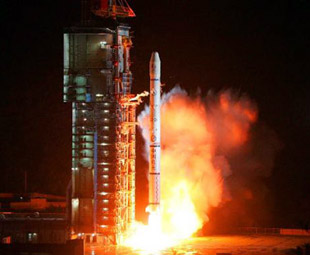 China Launches Satellite SinoSat-3
China Launches Satellite SinoSat-3
China on early Friday morning launched SinoSat-3, a communications satellite for radio and television broadcasting, aboard a Long March-3A carrier rocket, marking the 100th flight of its Long March series.
| |
|
3 Satellites Set for Launch in 2008
Efforts to monitor natural disasters and the environment will get a lift from aloft next year, when three small satellites will be launched.
| |
|
Space program eyes farther frontiers
Major breakthroughs are expected by 2010 in the country's ambitious space programs - from manned flights to the lunar probe - a senior space administrator said yesterday.
| |
|
 China's space centers to open for tourists
China's space centers to open for tourists
With the expansion of the national space program, China is witnessing a nationwide enthusiasm in space-related tourism, and a variety of special tours are now in the planning stages.
| |
|
China Capable of Using Space Tech for Weather Forecasting
China's development of space technology may not only be a means to fulfill the government's space dreams - it can be used for precision weather forecasting and pollution control, according to a meteorological expert who works for China's manned space program.
| |
|
|
